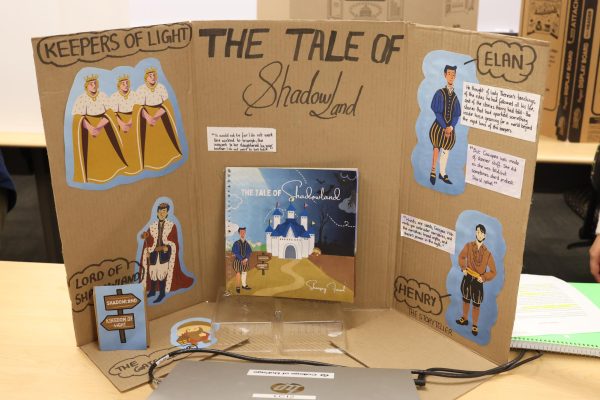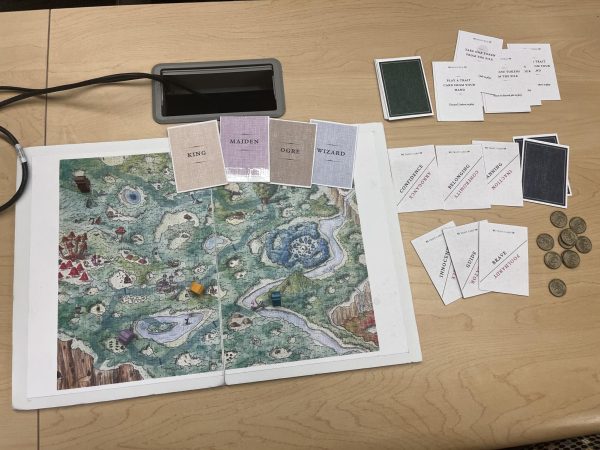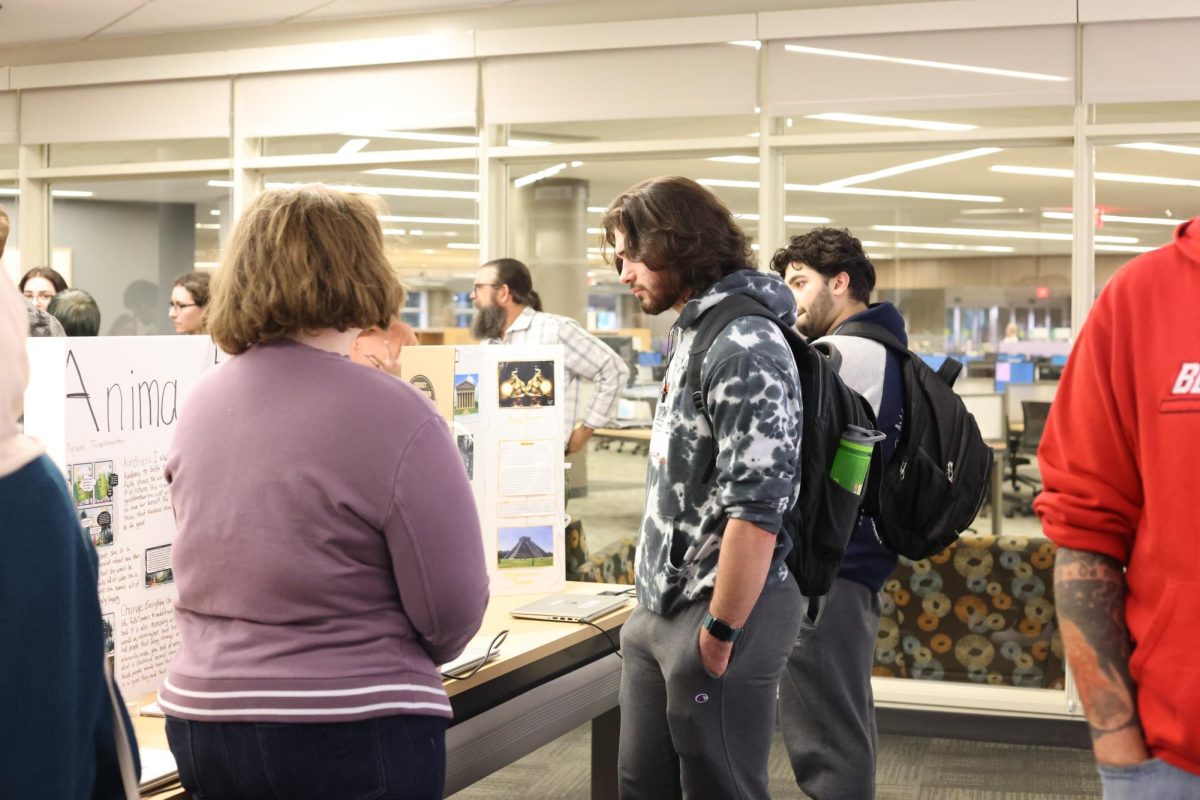Books aren’t just words on a page; they act as vessels to take the reader on a transformative journey. For students like Shanzay Faisal and Yahya Chowdhury, the novel “Gods of Jade and Shadow” was a perfect conduit to connect the themes of the book with their own personal experiences. Both presented their creative projects during the Great Read Series’ student showcase.
This event was just one of many interactive events that discussed the themes of this year’s selected reading, “Gods of Jade and Shadow” by Silvia Moreno-Garcia. Her novel chronicles the journey of Casiopea Tun during the Jazz Age of Mexico, who unknowingly releases a Mayan death god who wants to reclaim his lost power.
The 2024 Great Read Series was designed by English professor Alejandra Ortega to promote community learning outside of the classroom. The program is centered around “providing students the chance to see themselves within literature, highlighting contemporary voices, and encouraging everyone to learn from and listen to a new perspective.”
Ortega organized various events and opportunities that discuss and analyze Moreno-Garcia’s novel. Recently, art history professor David Ouellette gave a presentation about the art of the Mayan creation text known as the Popul Vuh. History professor John Paris gave a presentation on the Jazz Age, the setting of the novel. Students even had an opportunity to see the oldest version of the Popol Vuh at the Newberry Library in Chicago. Additionally, the reading was integrated into the curriculum of linked courses within the English, History, Political Science, and Philosophy departments.
Students of these classes, as well as various club members, highlighted their work during the student showcase. Garments, illustrations, interactive games and research presentations were some of the items created and presented by students. At the beginning of the event, Theatre students recited a part of the text.

For Shanzay Faisal, who is in Aleshia Balestri’s Honors English Comp II class, “Gods of Jade and Shadow” reminded her of the civil unrest in her native Pakistan. She created a short story using Canva to highlight themes of morality and autonomy.
“I wanted to bring a part of my community to this project,” said Faisal. “Back in my home country, I noticed that there are issues that need to be highlighted, and this project really allowed me to bring out a part of my country and myself over here.”
Faisal based her short story “The Tale of Shadowland” on the Pakistani movie Zindagi Tamasha. The film was heavily censored by the far-right party there, and they tried to stop it from being shown. The movie was even taken off YouTube.
“This is my version of it. It highlights cultural hypocrisy, social injustice and how the [government] believes that they are the ones who can dictate our own path. Supposed good people can actually be the evil ones,” concluded Faisal.
Lifelong board game enthusiast Yahya Chowdhury decided to create his own game based on “Gods of Jade and Shadow.” Chowdhury crafted his own deck of cards that have both a positive and negative trait. Players go through four challenges and must use positive traits while encouraging opponents to use negative ones.

“It was inspired by the inclusion of Hun-Kamé and Martin’s perspectives and that led me to think — could there be a story where any of the characters are heroes or villains,” said Chowdhury. “So, essentially, all of the characters start the same but as they go through the challenges, they could either become good or evil.”
Based on the final rankings of the players, the characters are then inserted into a short story written by Chowdhury.
On Oct. 28 from 6 to 8 pm, Silvia Moreno-Garcia will be hosting an author talk and book signing in the Turner Conference Center. For more information about the event and the Great Read Series, go to cod.edu/greatreads.









